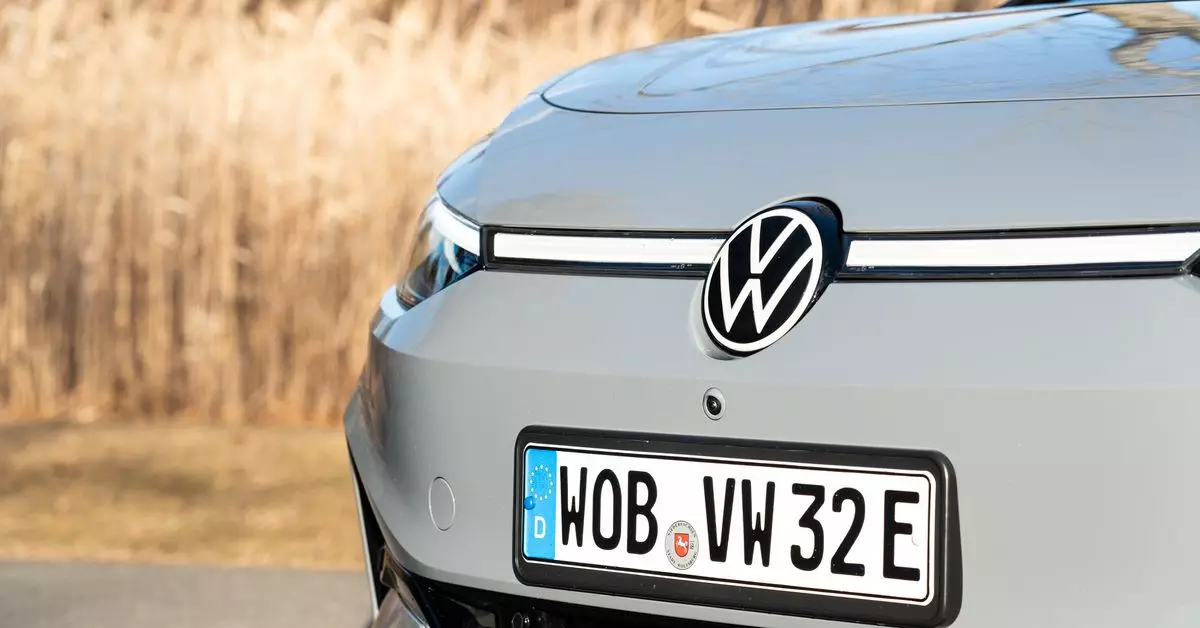In an alarming revelation, a data breach has compromised the location information of approximately 800,000 electric vehicles from Volkswagen. This breach, uncovered by the German news magazine Der Spiegel, highlights serious vulnerabilities within the software infrastructure of these vehicles. Sources indicate that a whistleblower alerted both Der Spiegel and the European hacking organization Chaos Computer Club about the issue, bringing to light not only the poor security measures but also the potential ramifications for driver privacy.
The leak is particularly concerning as it is not confined to Volkswagen’s electric cars alone; it extends to various brands under its ownership, including Audi, Seat, and Skoda—effectively placing a wide array of vehicles at risk globally. The scale of this breach raises questions about the adequacy of data protection protocols in automotive software, especially as the industry increasingly shifts towards connectivity and automation.
According to the investigation, the vulnerability originated from Cariad, a subsidiary of Volkswagen responsible for developing the company’s software solutions. This particular flaw allowed unauthorized individuals to access sensitive driver information stored in Amazon’s cloud storage. Der Spiegel’s findings reveal that the leak could not only expose vehicle whereabouts but also potentially link this information to personal details such as names, contact numbers, and addresses of drivers.
Moreover, the sensitivity of the data is underscored by the accuracy of the location tracking—about 460,000 vehicles had their locations pinpointed with a precision of ten centimeters, while Audi and Skoda models were tracked with a maximum margin of error of about six miles. Such granular details could enable malicious entities to trace a driver’s movements in real-time, posing significant safety concerns.
In an era where consumers are increasingly aware of their digital footprint, incidents like this can severely undermine trust in automotive brands. The implications stretch far beyond mere inconvenience; they touch on issues of personal safety and privacy. Consumers expect that the vehicles they operate are not only reliable but also secure. The revelation that sensitive data could be so readily accessible poses a significant threat to brand reputation and consumer confidence.
Volkswagen must now contend with the fallout of this breach, which may inspire greater regulatory scrutiny and compel the company to review its data protection measures comprehensively. Furthermore, it serves as a wake-up call for other manufacturers in the sector to evaluate their own security infrastructures and proactively address any potential vulnerabilities before facing similar repercussions.
Moving forward, it is crucial for automotive companies to prioritize the development of robust cybersecurity frameworks. Enhanced encryption methods, thorough vulnerability testing, and continuous monitoring of systems could help prevent similar data breaches in the future. Moreover, transparency about data collection and storage practices must become standard, restoring consumer faith in the technologies that power modern electric vehicles.
The Volkswagen data leak serves as an important reminder that as vehicles become increasingly digitized, the responsibility for safeguarding user data falls squarely on manufacturers. It is imperative for the industry to learn from this incident, safeguarding consumer privacy while embracing the technological advancements that define the future of transportation.


Leave a Reply